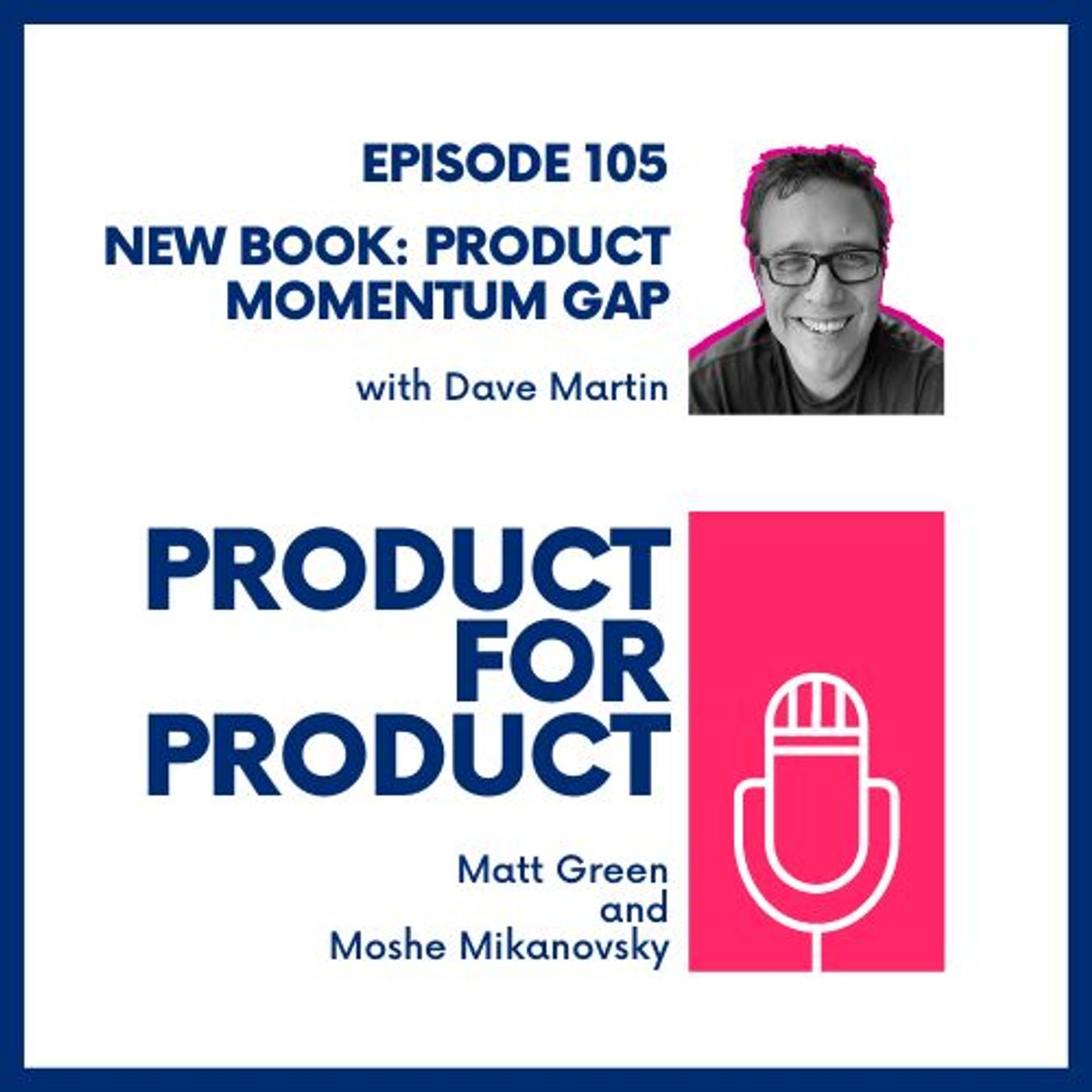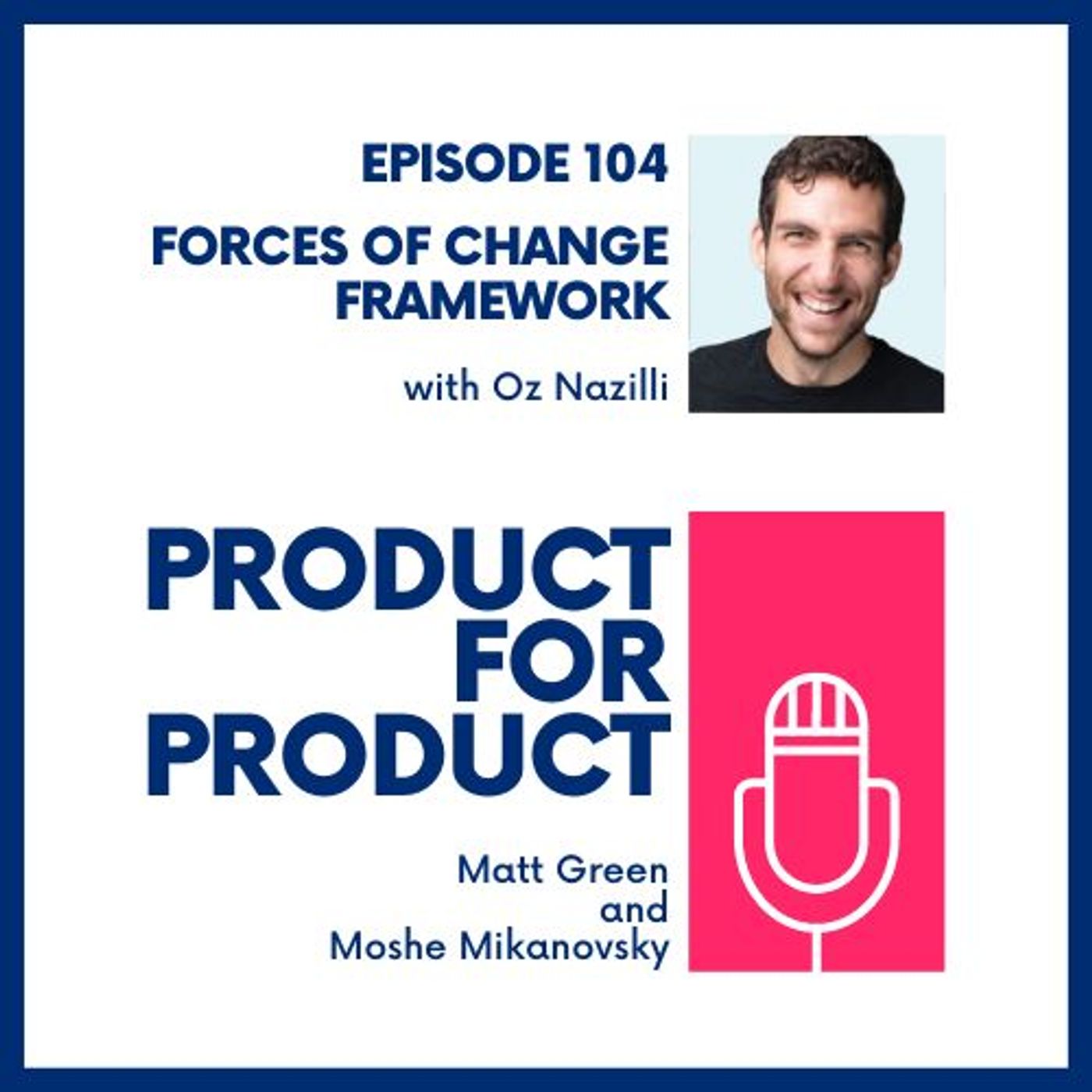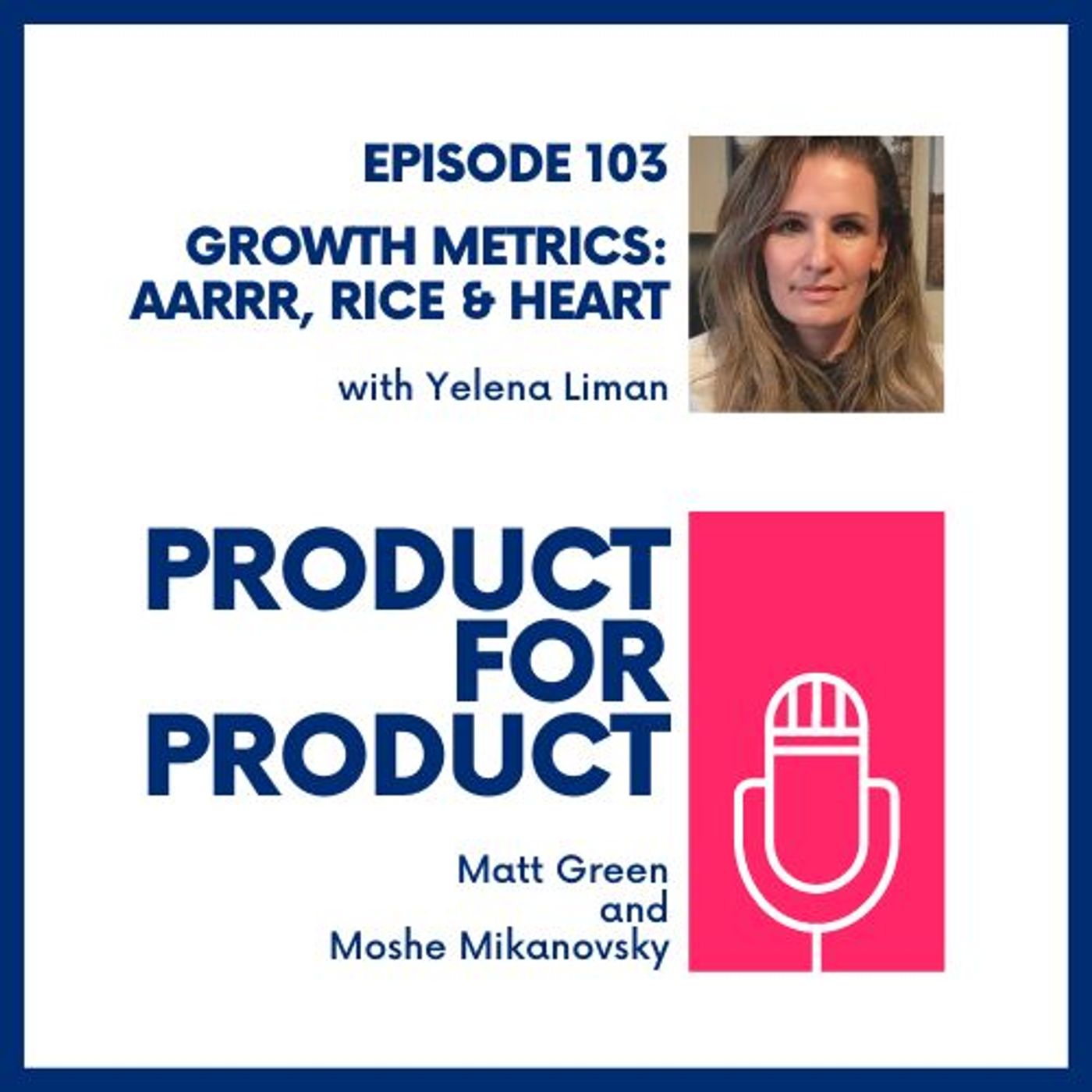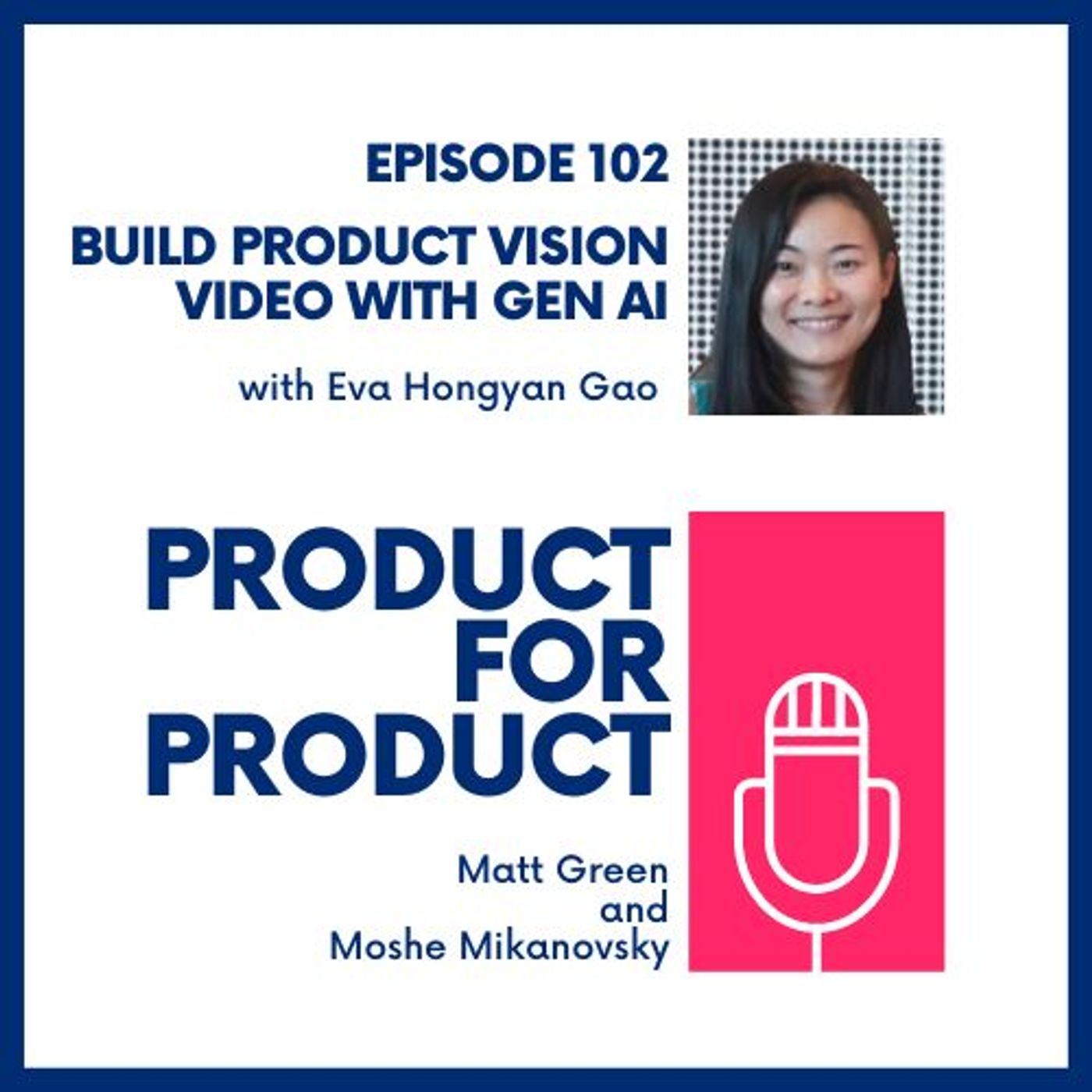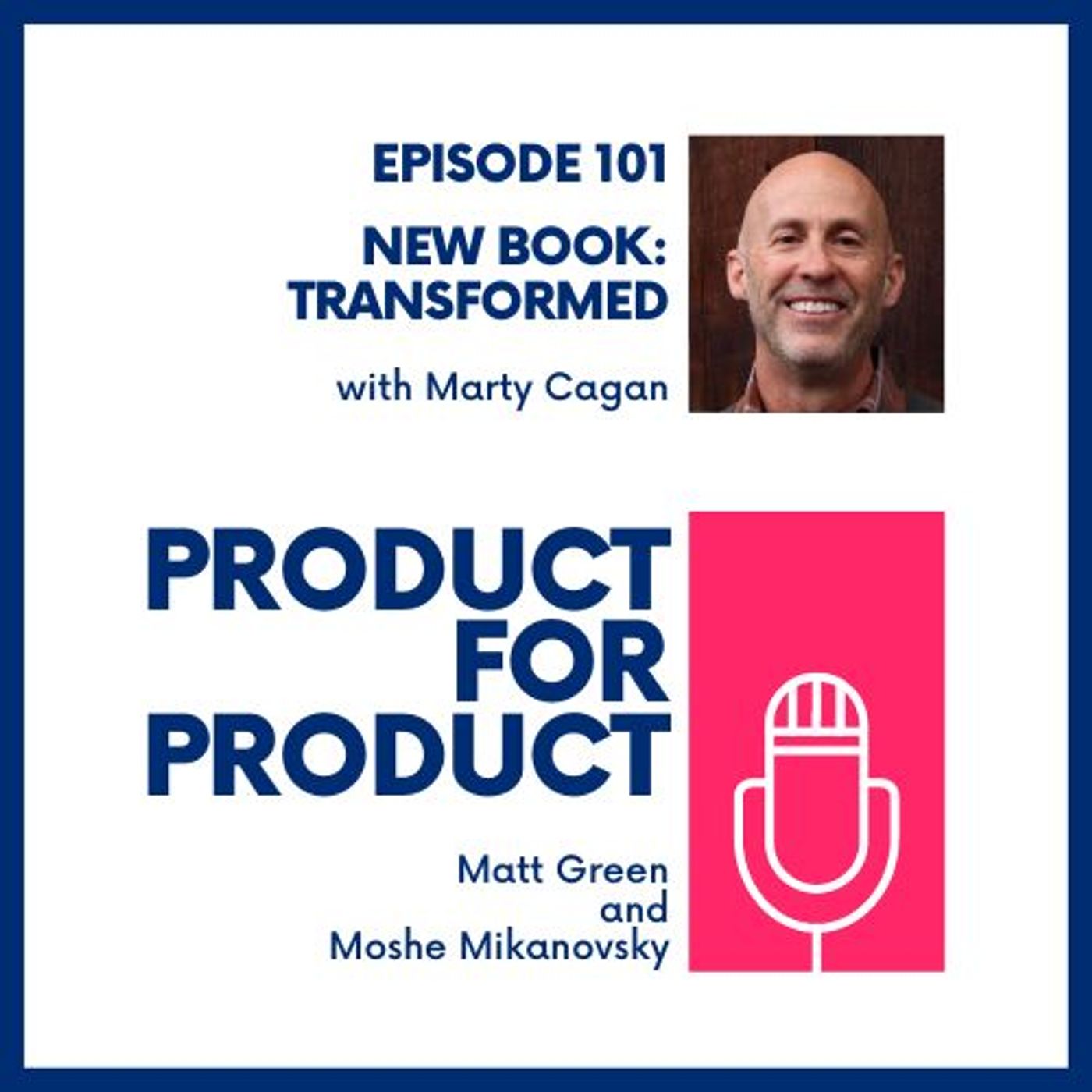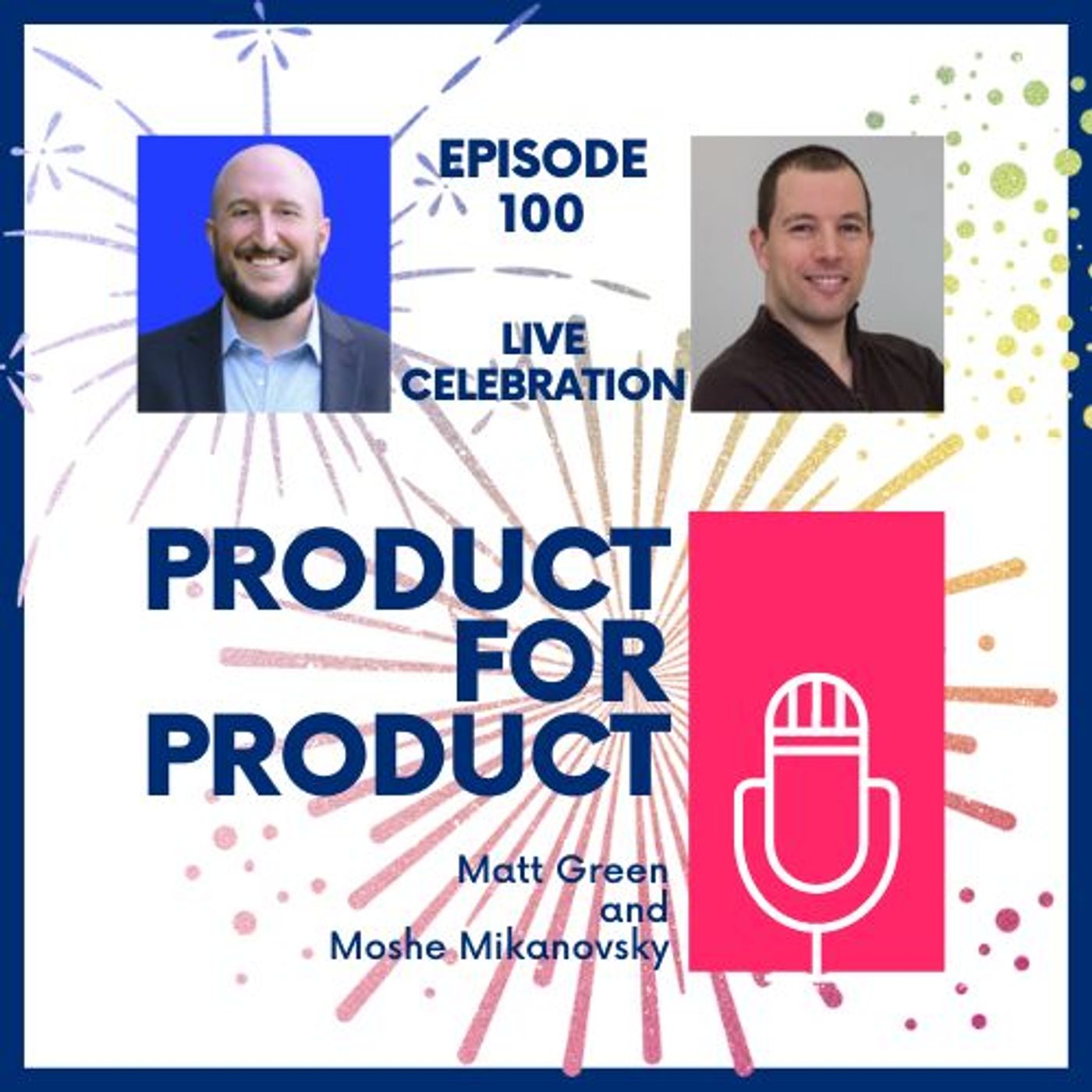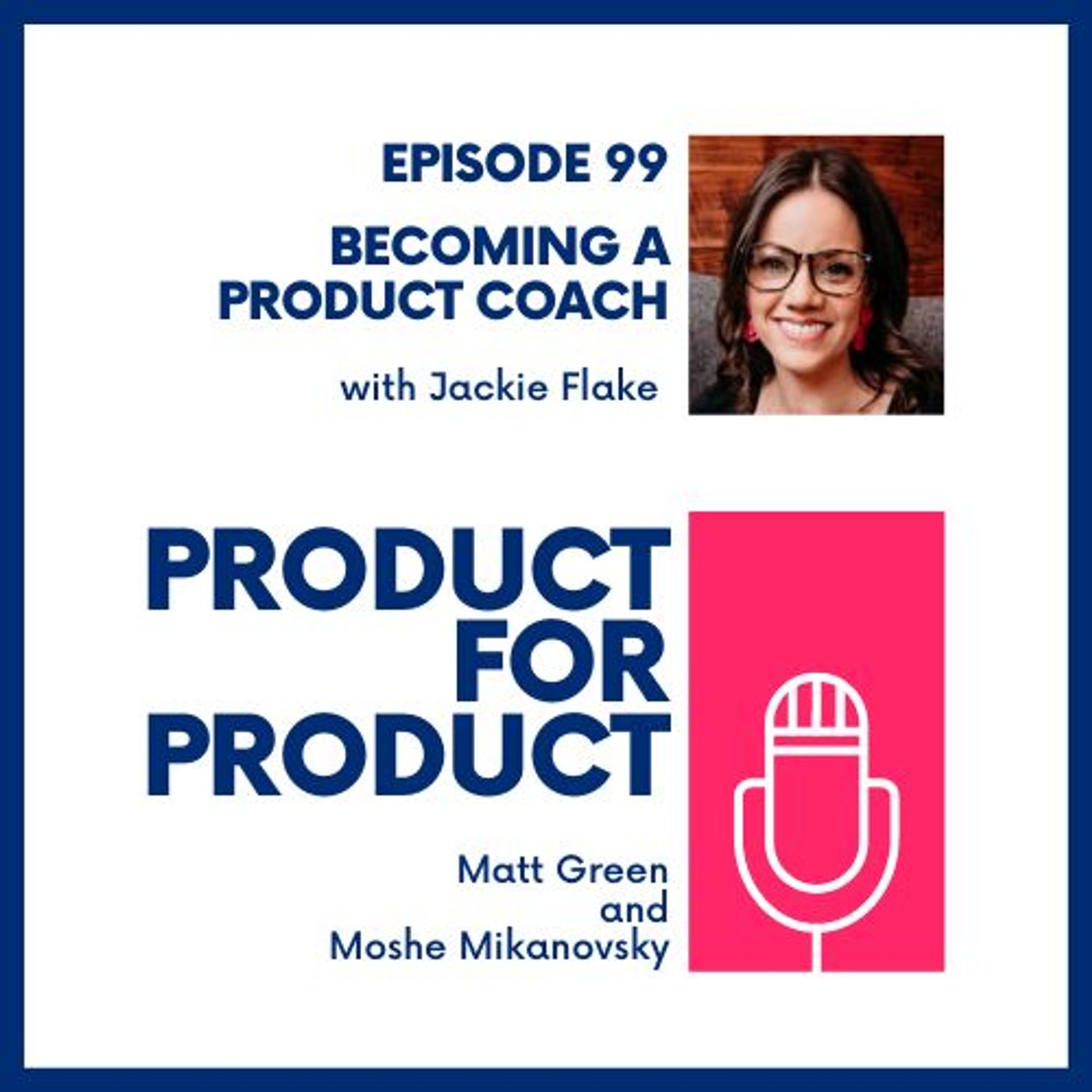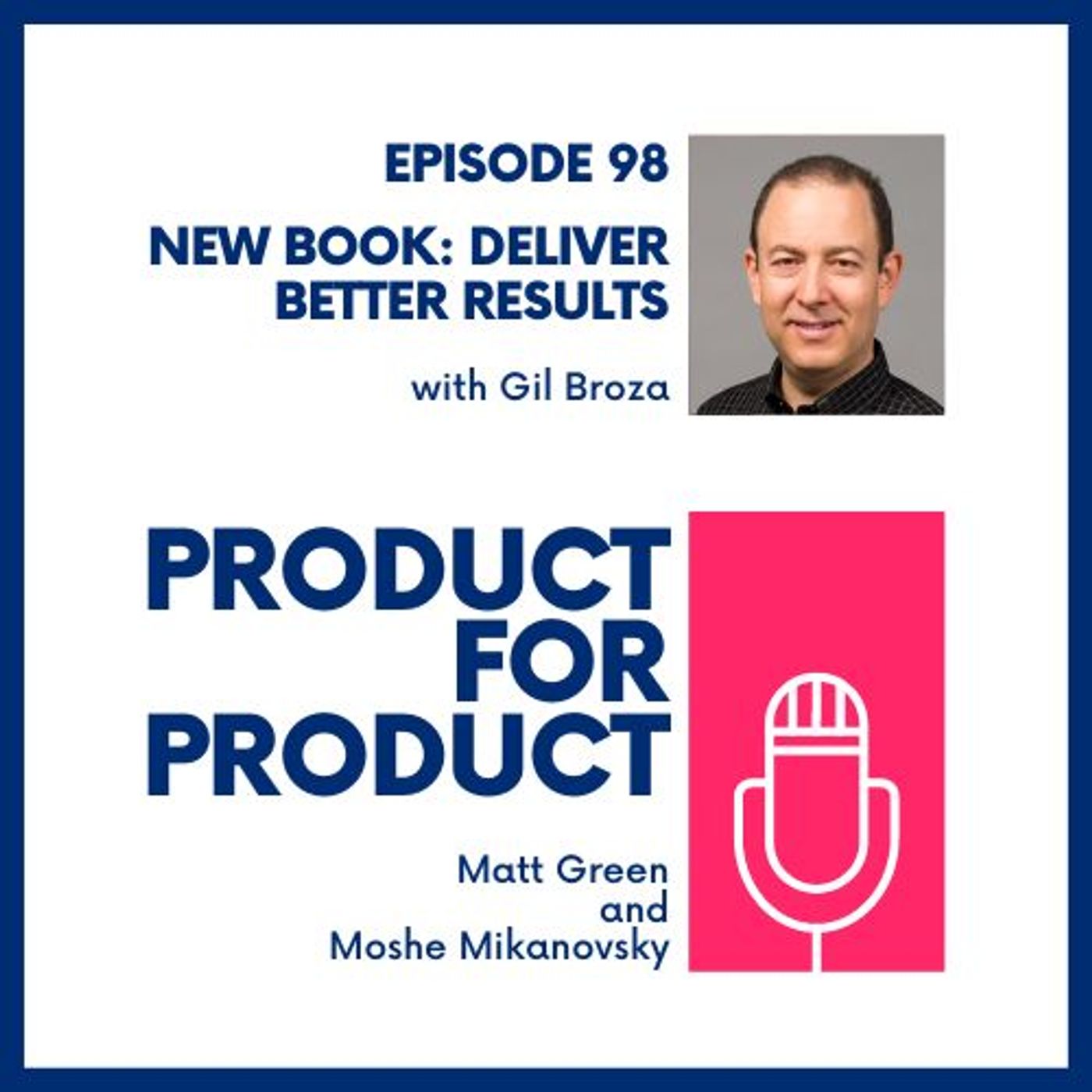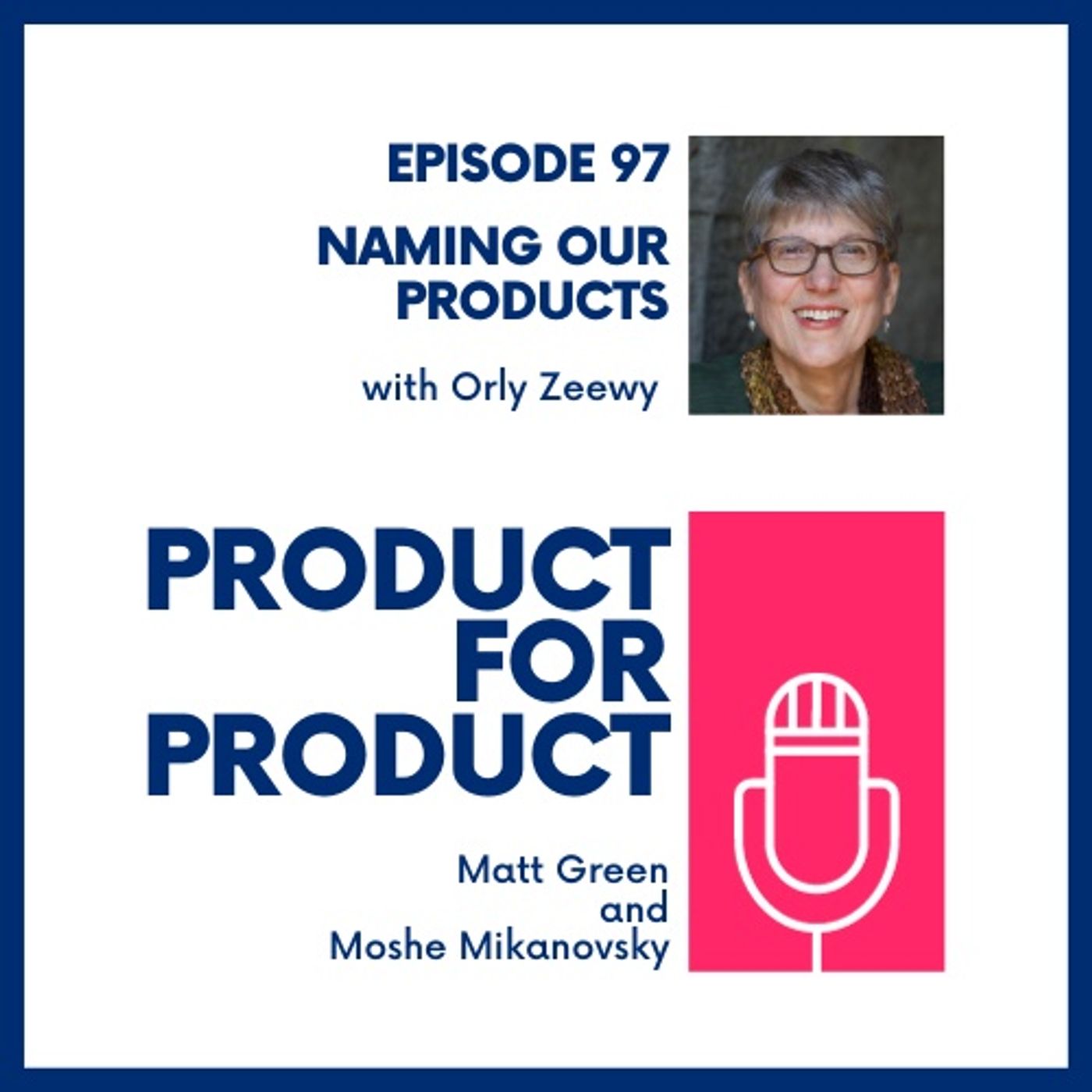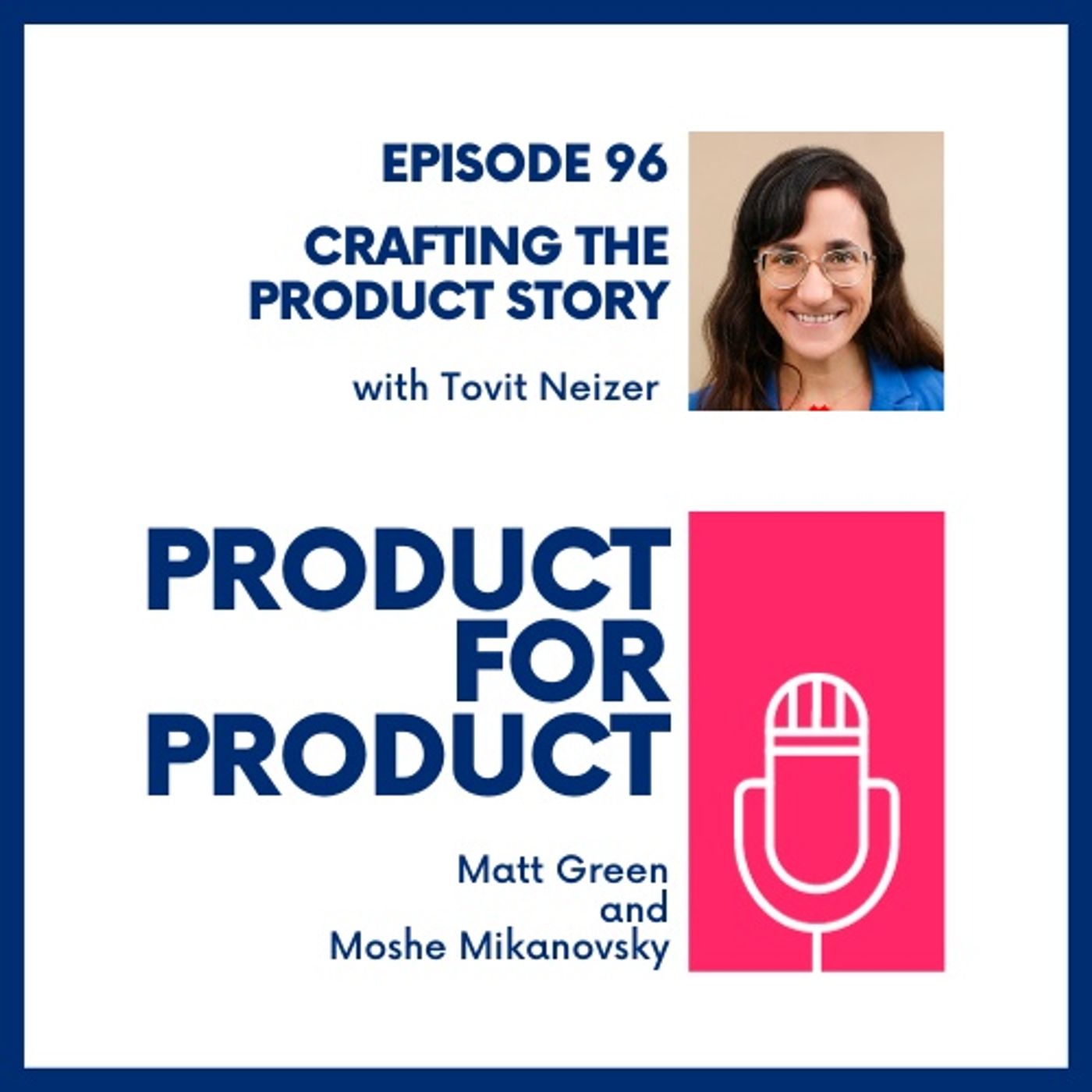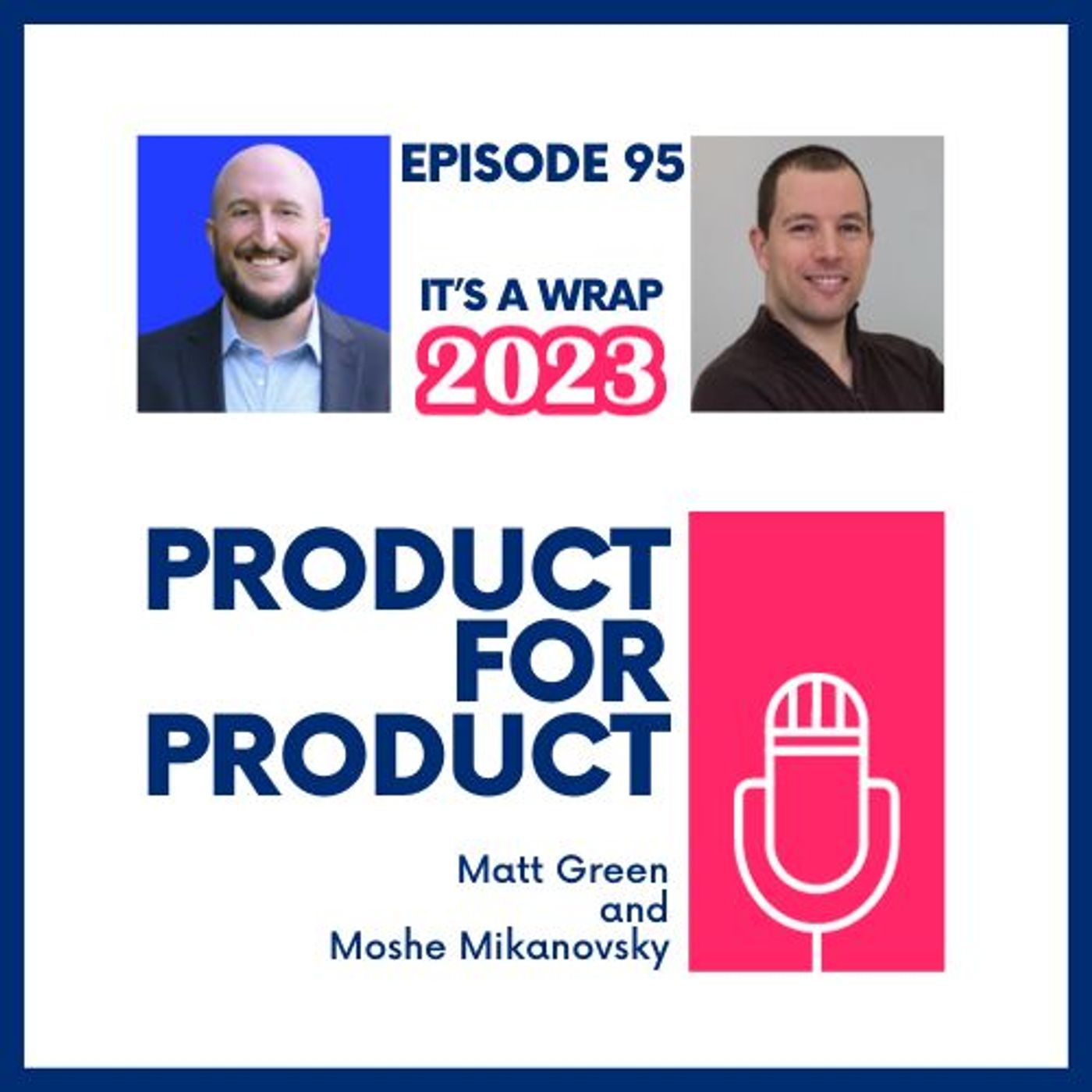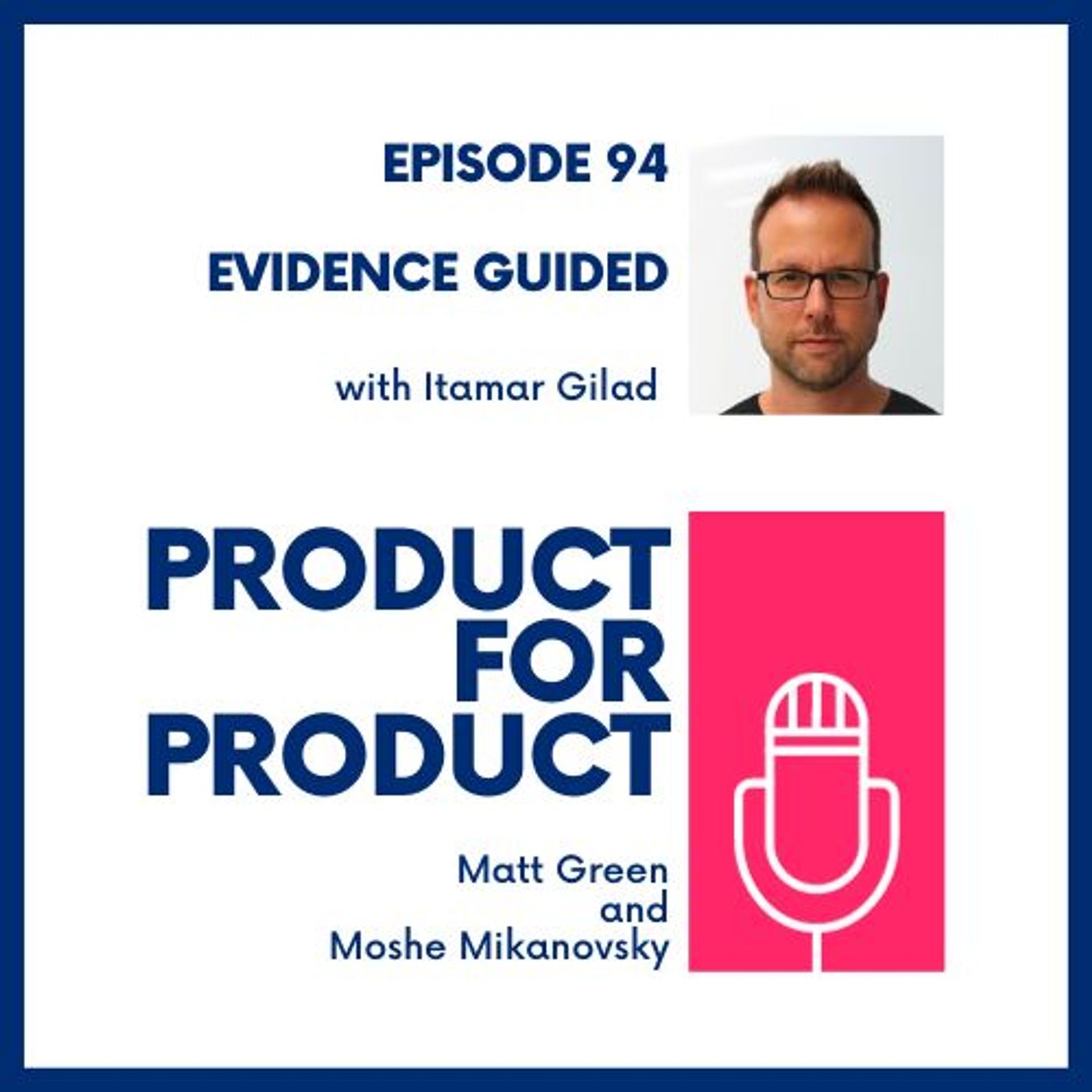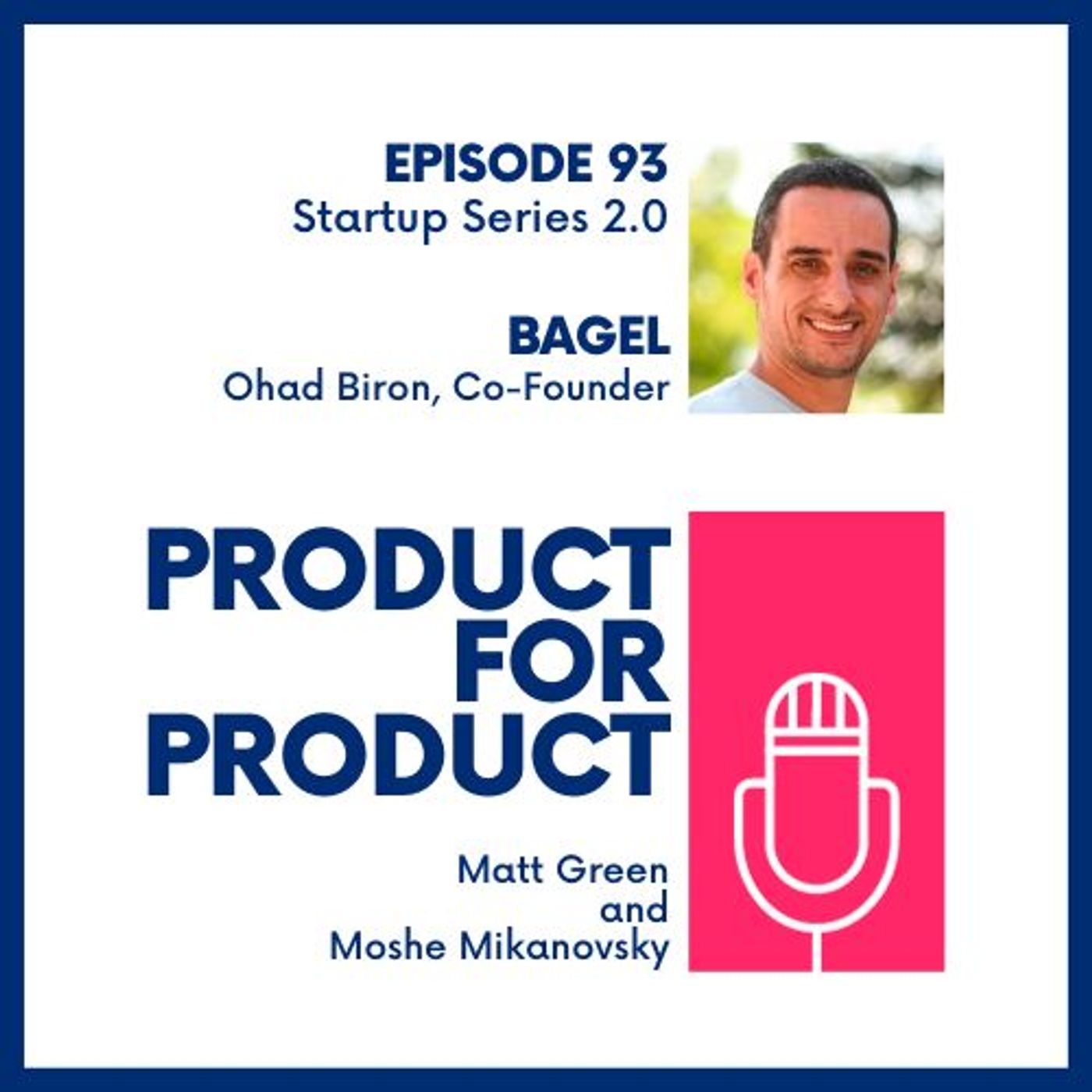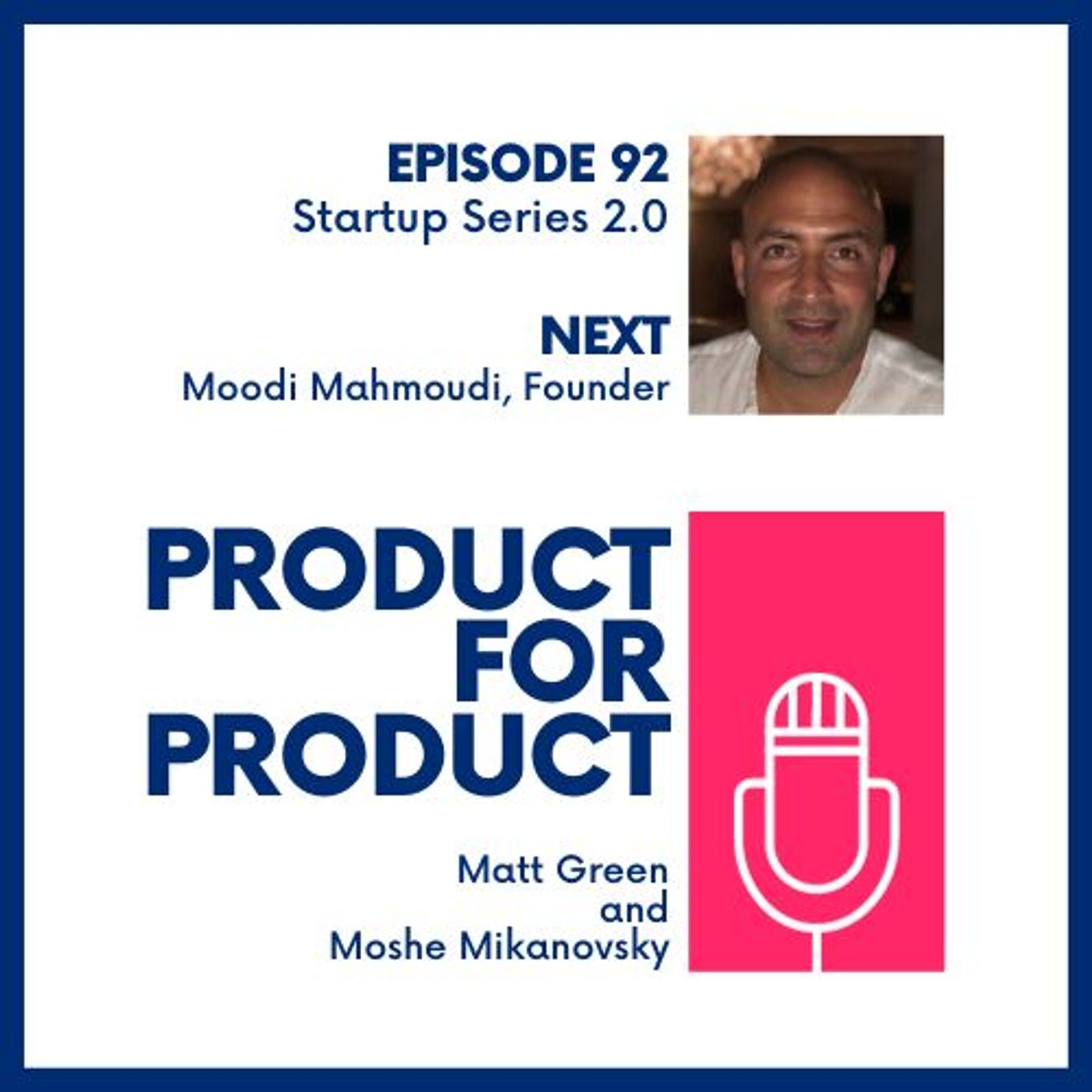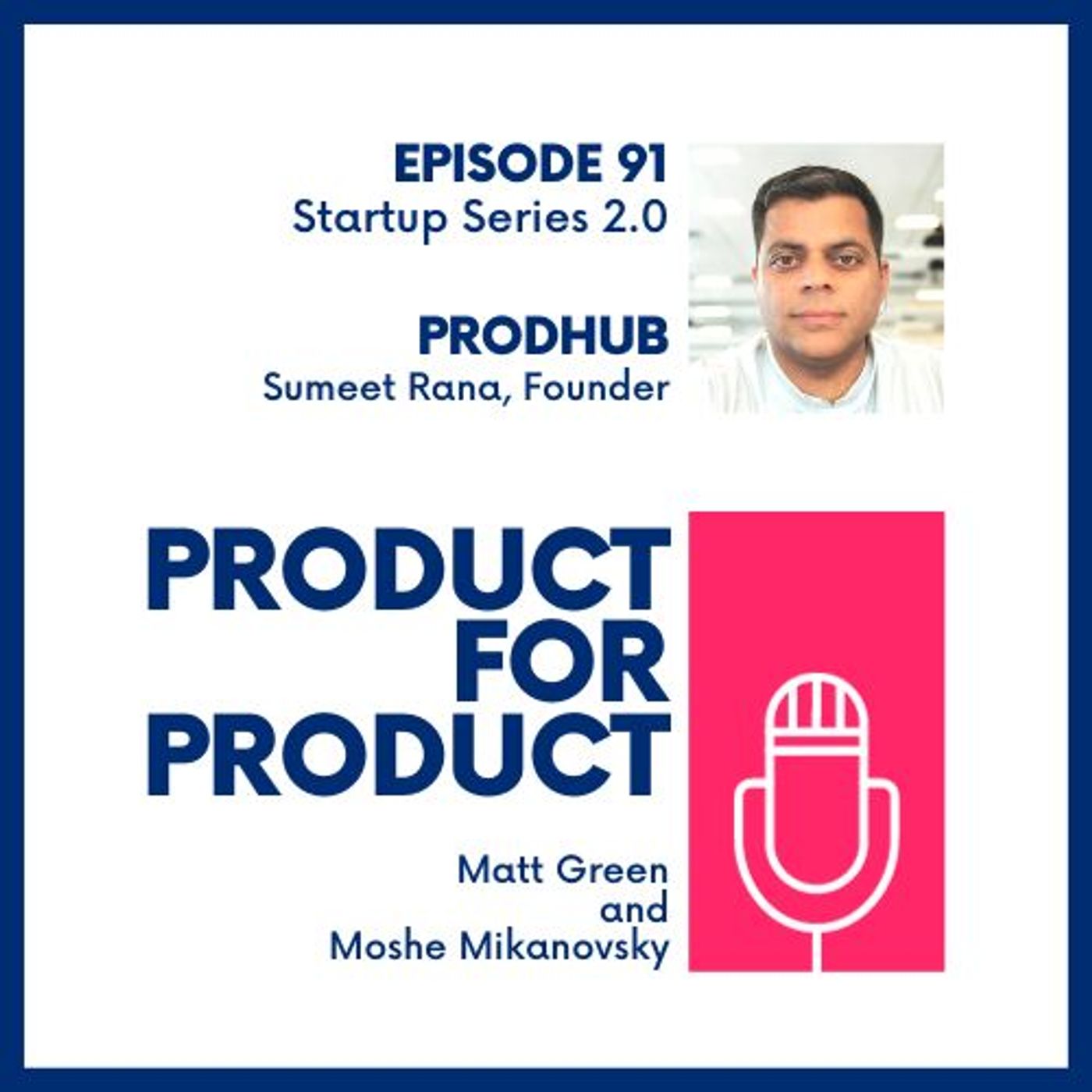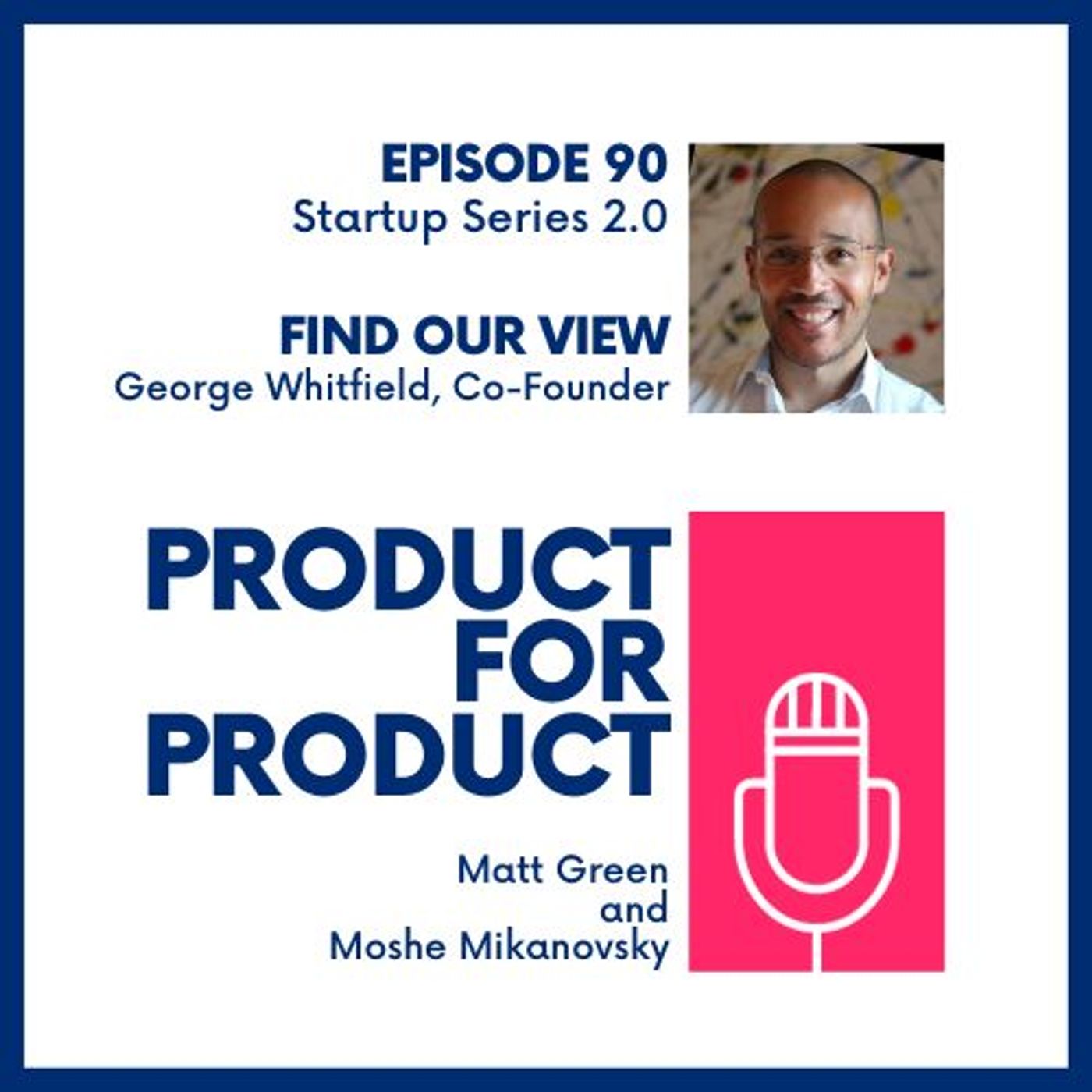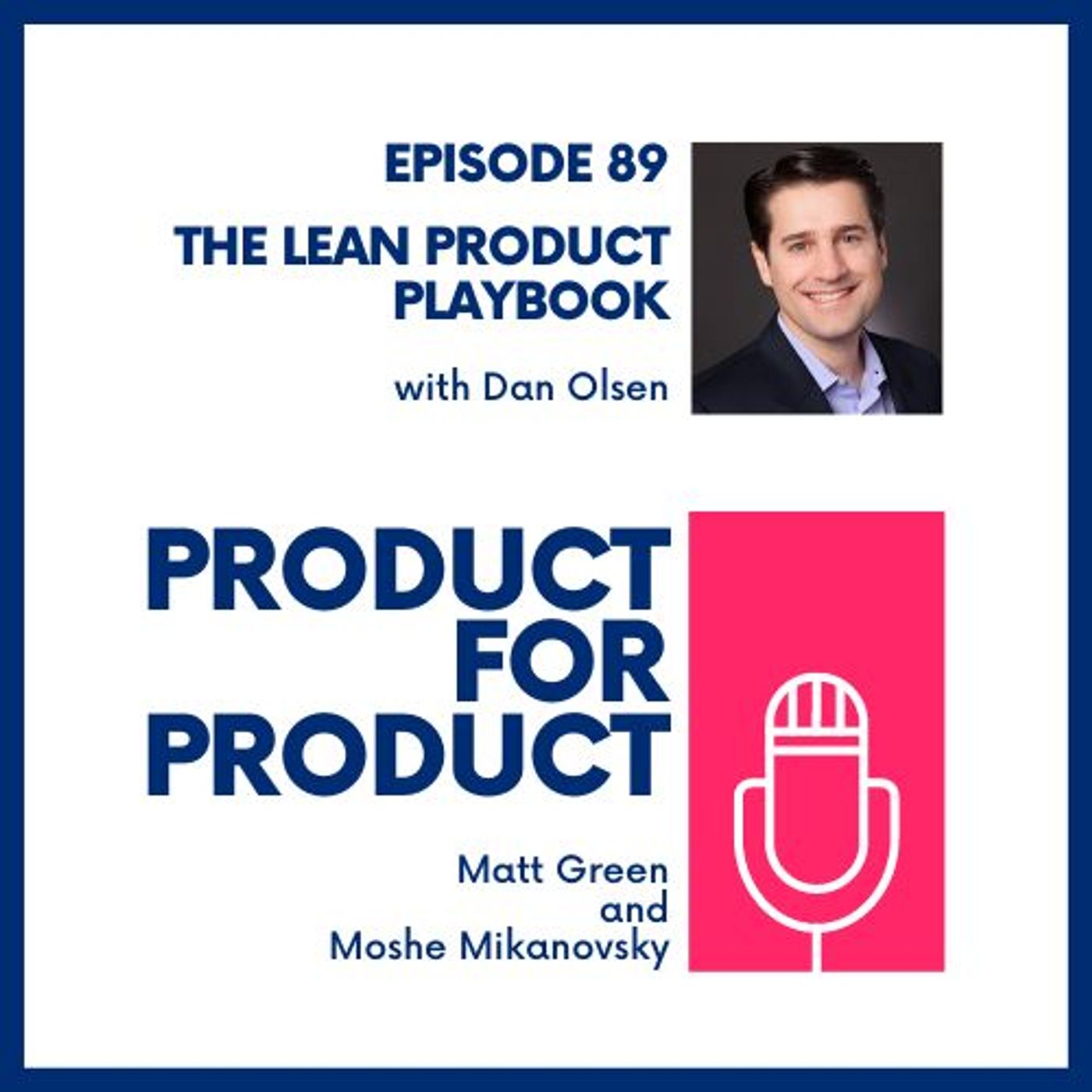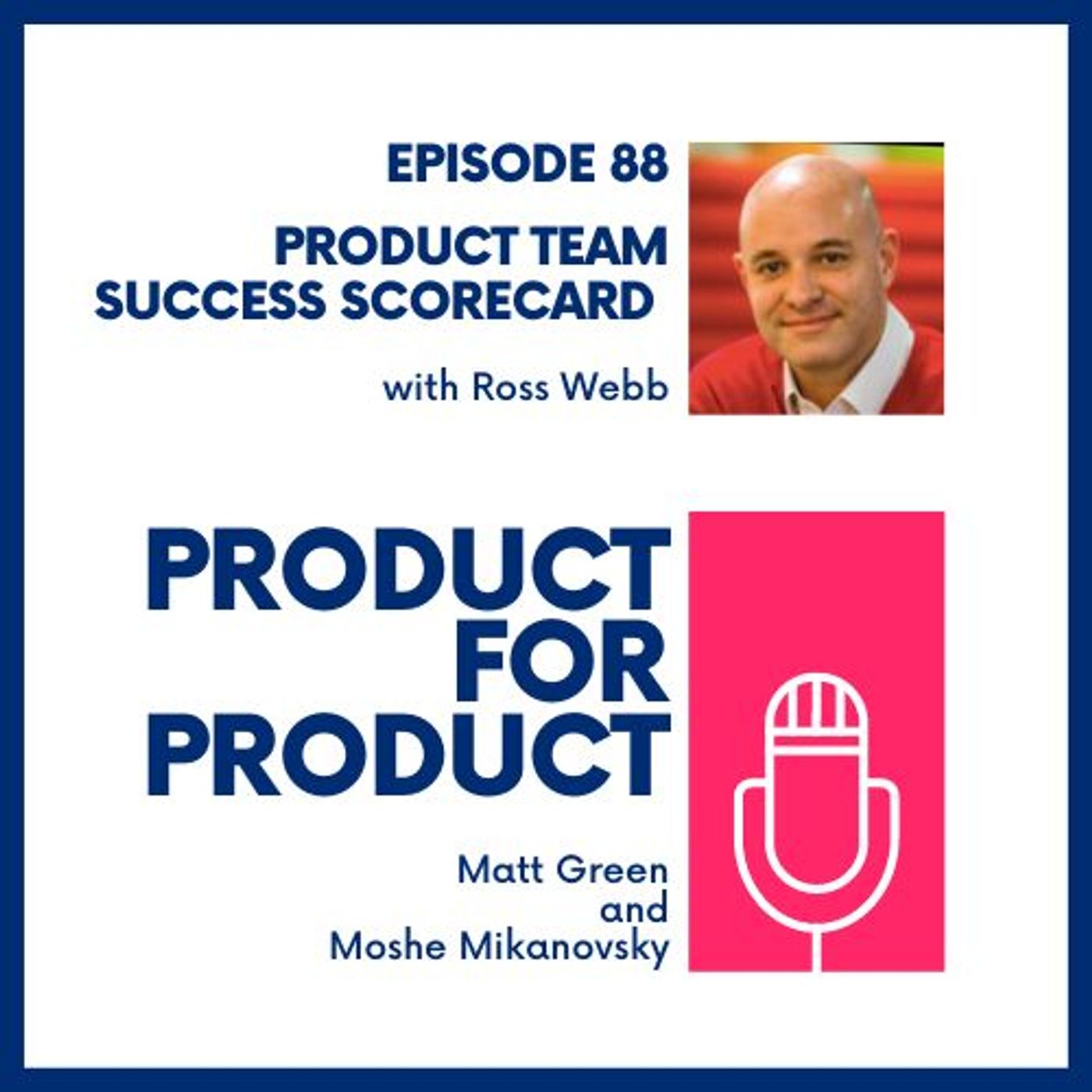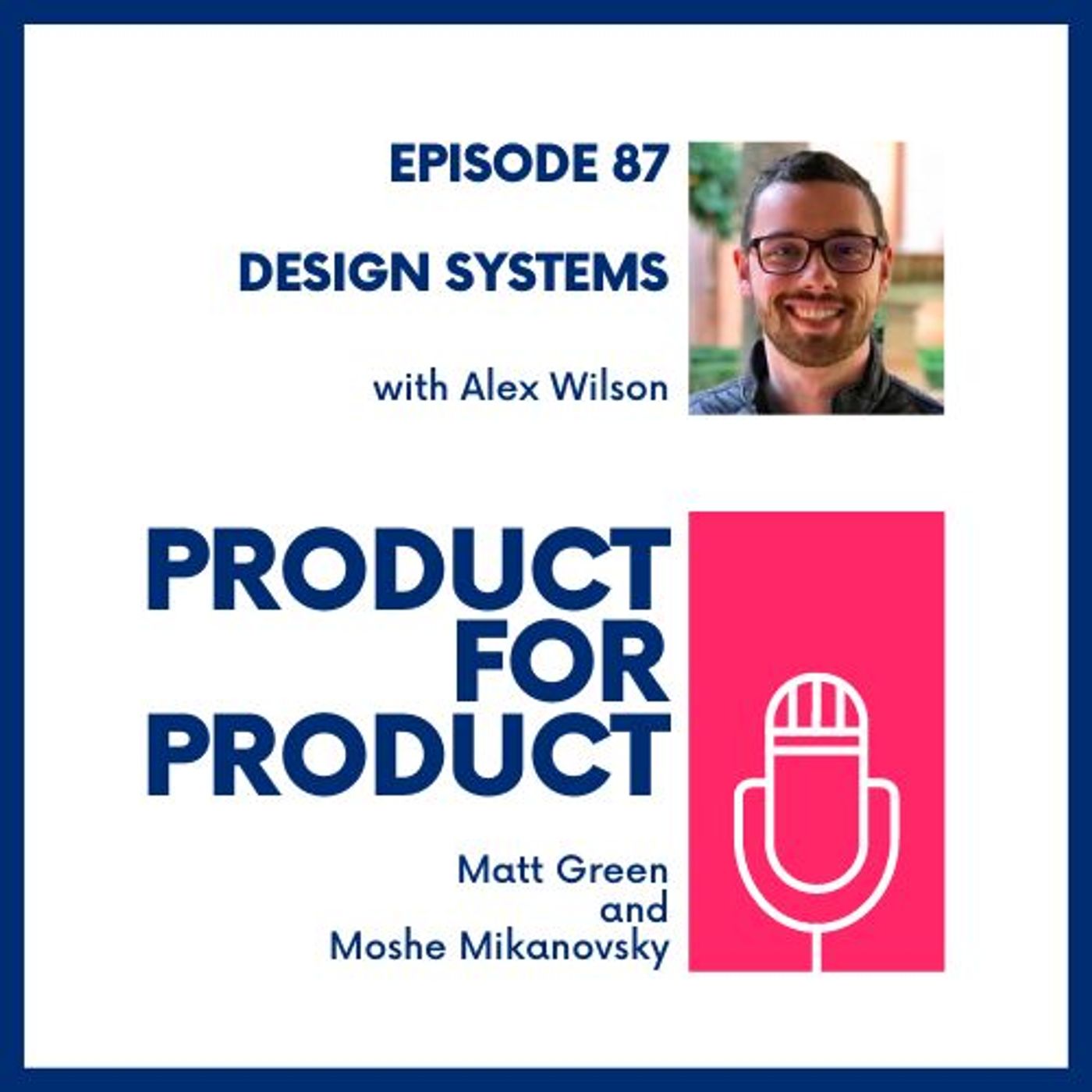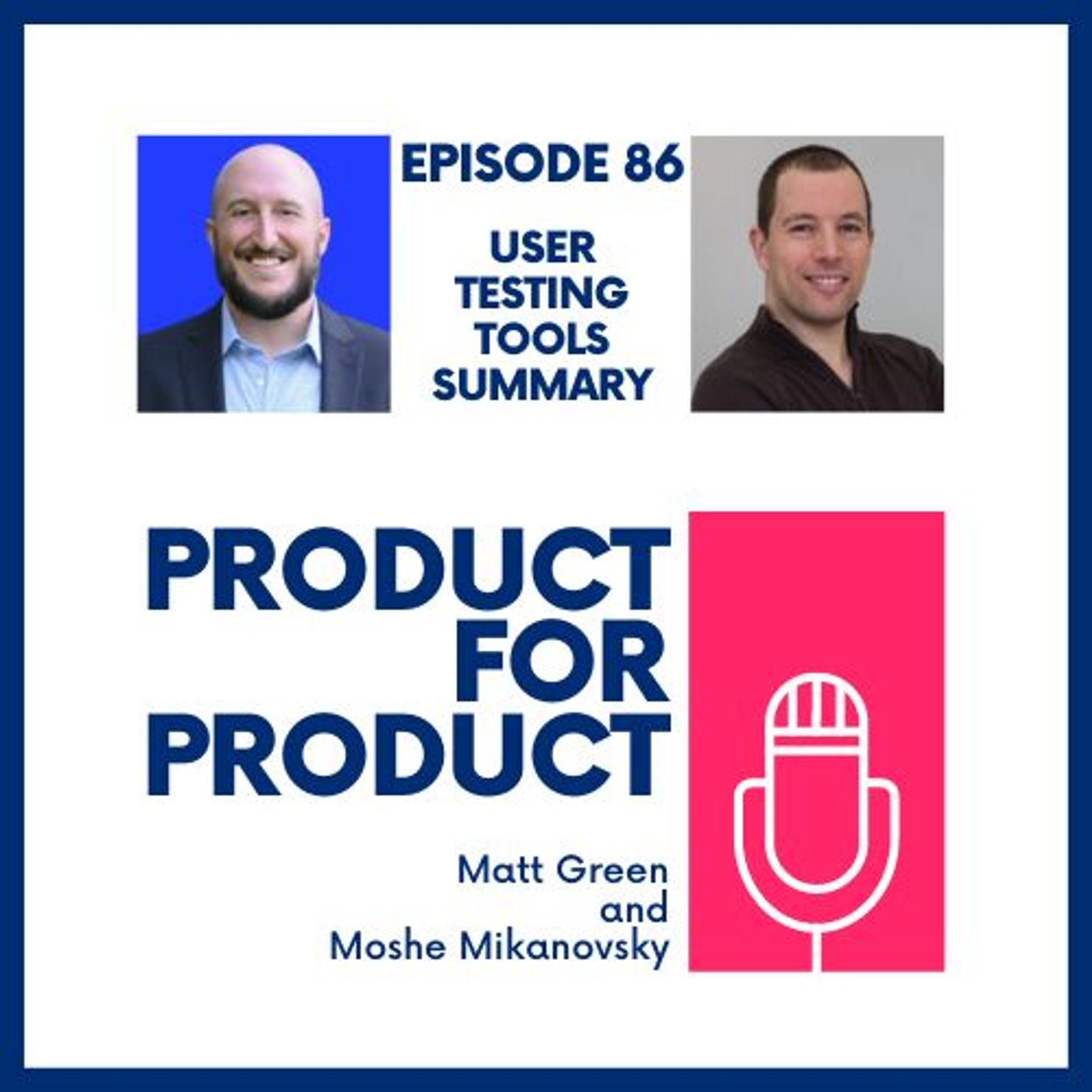Discover Product for Product Management
Product for Product Management

 Product for Product Management
Product for Product Management
Author: Matt Green & Moshe Mikanovsky
Subscribed: 36Played: 499Subscribe
Share
© Copyright Matt Green & Moshe Mikanovsky
Description
Product for Product is a show hosted by Matt Green and Moshe Mikanovsky aimed at helping listeners navigate the growing depth of product management tools while also providing our insights into the categories that make up the PM role. We will take listeners with us on a journey of discovery through areas of product analytics, road mapping, productivity and many others. If you want to keep up with the latest in product management come along for the ride!
Connect with us on LinkedIn:
https://linkedin.com/in/mattgr...
https://linkedin.com/in/mikano...
Connect with is on Youtube:
https://www.youtube.com/channe...
Connect with us on LinkedIn:
https://linkedin.com/in/mattgr...
https://linkedin.com/in/mikano...
Connect with is on Youtube:
https://www.youtube.com/channe...
106 Episodes
Reverse
Frameworks are always alluring, and especially in Product Management, where there is so much to do, and we sometimes need directions from those who have done it before us, or just organizing our work a bit better, but which framework should we choose? In this episode, Matt and Moshe met Oz Nazilli, Founder of PMF (Product Market Fit) Studio - a Toronto based studio that specializes in product strategy, discovery, and growth - to share with us his favorite framework - Forces of Change.This is a simple framework, yet very powerful and suitable for different organization sizes, in different stages they are at. The idea behind it is for us to make sure we build something people want, and it was first introduced by Bob Moesta and Chris Spiek, who were heavily involved in the Jobs to be Done movement. The framework can be found also as Forces of Progress, or The Progress Making Forces.Listen to the episode to learn more about:How Oz got into product management and building his own agency that help organizations of all size find their Product Market FitHow do we define Product Market Fit?What Forces of Change framework is all about: Where is it best fitted? How does it apply to enterprises vs startups?How it compares to other frameworks, or work with themWhat is usually the balance between these forces, if there is any?Can we prevent new problems or anxiety from happening? How do we reduce that risk?Any gotchas in the framework?And so much more!You can connect with Oz at:LinkedIn: https://www.linkedin.com/in/oznazilli/ PMF Studio: https://www.pmfstudio.com/ You can find the podcast’s page, and connect with Matt and Moshe on Linkedin: Product for Product Podcast - https://www.linkedin.com/company/product-for-product-podcast Matt Green - https://www.linkedin.com/in/mattgreenanalytics/Moshe Mikanovsky - https://www.linkedin.com/in/mikanovsky/Note: any views mentioned in the podcast are the sole views of our hosts and guests, and do not represent the products mentioned in any way.Please leave us a review and feedback ⭐️⭐️⭐️⭐️⭐️
Product Growth is one of the goals for our products once we found a Product Market Fit, but changing our mindset from finding the right solution to a problem that a specific market is facing, to growing the usage of our solution, is not always easy! To help us with this transformation, we can use several product growth frameworks.In this episode, we speak with Yelena Liman, CEO and Founder of EmPro Consulting, who specializes in helping SaaS product executives challenged with underperforming products to identify and address root causes to improve business results. Yelena has a rich product management background, from organizations such as Intel and Amazon, where she contributed to several product growth initiatives. On the show, Yelena helped us first understand what Product Growth is all about, how we can tell that our organization is already there, and then, which framework to use, picking from AARRR, RICE and HEART.Come and learn with us as we covered the following:How do businesses navigate the complexities of driving product growth in today's rapidly evolving market landscapeWhat are the three metrics: AARRR, RICE, and HEART?Which companies can utilize each of them?What is each of them used for?How to solve biases in RICE?The importance of stakeholders involvement What is the context that we should use these models in?How do we know we are there, working on the right growth metrics and growing?How to collect data and analyze it to understand our growth and whether what we do is working?And so much more!You can connect with Yelena at:https://www.linkedin.com/in/yelenaliman/EmPro Consulting: https://www.emproconsulting.ca/ You can find the podcast’s page, and connect with Matt and Moshe on Linkedin: Product for Product Podcast - https://www.linkedin.com/company/product-for-product-podcastMatt Green - https://www.linkedin.com/in/mattgreenanalytics/Moshe Mikanovsky: https://www.linkedin.com/in/mikanovsky/Note: any views mentioned in the podcast are the sole views of our hosts and guests, and do not represent the products mentioned in any way.Please leave us a review and feedback ⭐️⭐️⭐️⭐️⭐️
Generative AI is everywhere, and we all see the impact it creates on our life, no matter what we do. Product Management is no exception. In this episode we met with Eva Gao, Senior Product Manager at Quentic AMCS, who caught our attention when she published a post about how she built a Product Vision video using GenAI tools.A Product Vision video is one of the best ways to convey to the entire team why we are embarking on the sometimes challenging endeavor of building new products. Done right, it can rally and inspire everyone in our organization to the same direction and goals.When Eva managed a new product generation at Quintic, helping clients in risk management and mitigation of occupational hazards, she was facing challenges from internal stakeholders, who wanted to migrate their clients from the legacy system, but faced resistance from clients who didn’t want to make the move. This was impacting the organization as a whole, and this drove Eva into trying to effectively explain to all internal stakeholders the importance of upgrading the clients sooner than later, but she didn’t want to make it a memo or a dry presentation! Instead, Eva came up with the idea to create a funny video, using story telling and analogs from cultural references that people at the organization were already familiar with. Without a technical know-how in video production, and a very limited budget, Eva decided to utilize GenAI tools!Join us as Eva chats with Matt and Moshe, describing in detail the steps she took to build the Product Vision video.In the episode you will learn:What is needed to produce such a videoSome of the tools existing these days to help with the production of the videoChallenges with some of the tools and technologyWhat level of license do we need to use these toolsUnderstanding how to “talk” with the GenAI tools - prompt engineering How did she communicated the message with her stakeholdersHow do we measure the success of the video and it’s messageAnd so much more!Tools that Eva used to create the Product Vision video:Playground AI for image generation: https://playground.ai/ Beautiful.ai for presentations: https://www.beautiful.ai/ Pika Art for generating 3-second videos: https://pika.art/ invideo AI for image based long video generation + quality voice-over: https://invideo.io/ You can connect with Eva at:LinkedIn: https://www.linkedin.com/in/ev.../ Blog: https://medium.com/@starmancallin You can find the podcast’s page, and connect with Matt and Moshe on Linkedin:Product for Product Podcast - https://www.linkedin.com/company/product-for-product-podcastMatt Green - https://www.linkedin.com/in/mattgreenanalytics/Moshe Mikanovsky - http://www.linkedin.com/in/mikanovskyNote: any views mentioned in the podcast are the sole views of our hosts and guests, and do not represent the products mentioned in any way. Please leave us a review and feedback ⭐️⭐️⭐️⭐️⭐️
We are very excited to bring you our latest episode - an interview with Marty Cagan, on the occasion of the release of his new book TRANSFORMED: Moving to the Product Operating Model. Marty wrote the book with his partners at the Silicon Valley Product Group - Lea Hickman, Christian Idiodi, Chris Jones and Jon Moore, and it was highly anticipated by the entire Product community around the world.Following his books INSPIRED (where Marty lays down the foundations on how to build product the right way) and EMPOWERED (which aims to the leaders of product teams, helping them become empowered teams that solve real problems for client, and achieve outcomes to the organization), the new book is about the transformation of the entire organization from Feature Factories to Empowered Team, or, as it coined in the new book, moving to the Product Operating Model.This is the missing piece that many of us in the product world were waiting for! Following Marty’s and SVPG’s work, we have known for years what successful product companies are doing, and why being a feature factory is counter productive to solving real problems. But the world out there is still mostly dominated by organizations doing it all wrong. We hope that TRANSFORMED will not just be a bestseller, but will make real transformation in the world, to help companies move to the Product Operating Model, and create amazing products that solve real problems, and create value to their organization.Join us as Matt and Moshe discuss this with Marty:Where did the name “Product Operating Model” come from?Who is the book for? It is not just for product people! On the contrary, it is extremely important that the CEO and the executives are part of - and leading - the transformationAddressing the question “Is it possible to change?” The book includes techniques that are not just about product management but transformational techniquesHow do individual contributors from the product team can impact and help the transformation Misalignments created by the language we are using, starting from defining what we do, and how different people in the organization are using different words, that must be understood and alignedThe importance of empathy to stakeholders, and how product managers should understand deeply what other areas of the business do, to create the internal confidence that we know what we are doingThe role of Product Coaches in helping executives and organization successfully transform The relevancy of the Product Operating Model around the world, demonstrated by the examples and case studies in the bookTips for product people in organizations that don’t yet see the need to change, on how they can control their destiny, what they can learn and do to move forwardAnd so much more!You can connect with Marty at:LinkedIn: https://www.linkedin.com/in/cagan/ Silicon Valley Product Group: http://www.svpg.com/ SVPG blog: https://www.svpg.com/articles/ TRANSFORMED: Moving to the Product Operating Model https://www.amazon.com/Transformed-Becoming-Product-Driven-Company-Silicon/dp/1119697336The books, INSPIRED, EMPOWERED and TRANSFORMED: https://www.svpg.com/books/ You can find the podcast’s page, and connect with Matt and Moshe on Linkedin: Product for Product Podcast - https://www.linkedin.com/company/product-for-product-podcast Matt Green - https://www.linkedin.com/in/mattgreenanalytics/Moshe Mikanovsky - https://www.linkedin.com/in/mikanovsky/Note: any views mentioned in the podcast are the sole views of our hosts and guests, and do not represent the products mentioned in any way.Please leave us a review and feedback ⭐️⭐️⭐️⭐️⭐️
What a ride this has been! With a humble beginning three years ago, we are now celebrating our 100th episode! And we celebrated it big, in a live streamed 2 hours episode, with many of our past guests joining us to share what’s new with them, and what is the state of products for product people. Not surprisingly, we all ended up talking about AI, and how AI can help - or hinder - product management work.Come join us and listen (or watch the recording on YouTube) the recording of the live show with all our guests: Ohad Biron, Gil Broza, Jackie Flake, Kevin Hawkins, Eva Hongyan Gao, Jason Knight, Tracy Laranjo, Tovit Neizer, Dan Olsen, Magali Pelissier, David Pereira, Faith Peterson, Sumeet Rana, Ross Webb, Alex Wilson and Orly Zeewy.You might learn:Who is hiring and have available jobsHow an open discussion might become a discovery callWho can help you and give you tips on starting a podcastWhat goes into a good product nameSome interesting new tools for wireframingWhat's new in the user testing tools’ worldWhat is the balance between doing our work and using AI toolsAnd so much more!Also, thank you to Nils Janse, Henry Latham and Paul Orchanian who couldn’t join us live but sent us a short video, also included in the episode, with their words of congratulations and prediction for the future.You can connect with all our guests on LinkedInYou can find the podcast’s page, and connect with Matt and Moshe on Linkedin: Product for Product Podcast - https://www.linkedin.com/company/product-for-product-podcast Matt Green - https://www.linkedin.com/in/mattgreenanalytics/Moshe Mikanovsky - https://www.linkedin.com/in/mikanovsky/Note: any views mentioned in the podcast are the sole views of our hosts and guests, and do not represent the products mentioned in any way.Please leave us a review and feedback ⭐️⭐️⭐️⭐️⭐️
In the past year or two, in parallel to the growth throughout the industry of Product Management discipline and skills, we are witnessing the growth of product coaching as a career path. On this episode we met with Jackie Flake, a product professional turned product coach, and twice founder. Working with her co-founder at The Brave Start, they developed the Product Coach Academy, a program that helps product leaders make the move towards their independence as product coaches. The program provides participants with an entire toolkit to support them turning the aspiration into an actual business. These are not limited to just the coaching business aspects, but also things to be aware of specifically for product professionals. Join us as we learn from Jackie about the challenges to become a product coach and how her program can help aspiring product coaches. In the episode you will also learn: - How Jackie transitioned into Product Coaching - Whats the differences are between product coaching, product consulting and product mentoring - What areas one needs to learn in order to start their own product coaching business - The course’s structure and what’s included - The importance for finding a niche in coaching - Areas of product management coaching - How to deal with some of the stresses involved in solopreneurship like coaching - Number one piece of advice for someone looking to become a Product Coach - And much more… - You can connect with Jackie at: - LinkedIn: https://www.linkedin.com/in/ja... - The Brave Start: https://www.thebravestart.com/ - Product Coach Academy: https://www.thebravestart.com/... - You can find the podcast’s page, and connect with Matt and Moshe on Linkedin: - http://linkedin.com/company/pr... https://www.linkedin.com/company/product-for-product-podcast - https://www.linkedin.com/in/ma... - https://www.linkedin.com/in/ma... - http://www.linkedin.com/in/mik... - https://www.linkedin.com/in/mi... - Note: any views mentioned in the podcast are the sole views of our hosts and guests, and do not represent the products mentioned in any way. Please leave us a review and feedback ⭐️⭐️⭐️⭐️⭐️
In today’s episode we had the privilege to meet with Gil Broza, Founder and Value Delivery & Agile Leadership Expert at 3P Vantage, author, trainer, coach, facilitator and speaker, as he released his latest book (number 4!), Deliver Better Results: How to Unlock Your Organization’s Potential.Bringing his vast experience from decades helping software companies and enterprises with IT departments go through organizational transformation, Gil developed a unique point of view and method to assess a company's fitness, and move incrementally to their best possible fitness as an organization producing real results with their digital product development.Gil’s method’s core strength, and the way it is presented in the book, is for companies that are building complex technical products, so it fits nicely with what we do as Product Managers in the digital world.Utilizing system thinking for everyone involved in creating the product, Gil identifies 6 fitness aspects to measure our team/system. Then, with the team, we score the overall level of fitness (based on a very simple scoring system for each fitness aspect). Once we have our score (and we have to be honest about where we are!), we fit into a level on a scale of 5 levels. The move up the ladder from each level to the next is sequential, applying strategies that Gil explains in detail in the book.Join us as we discuss Gil’s process on the show. In the episode you will also learn: What is “a system”?How do we define the system of delivering a technical product?The importance of assessing the fitnessThe 6 fitness aspectsSome strategies to move between fitness levelsHow each strategy fits in the level the company is atWhat happens if we don’t apply the strategies in the right order?Is assessing our company’s fitness and applying the strategies fitting a specific development process (scrum, kanban, waterfall etc) or is it agnostic?And much more…And as a bonus for our listeners, you can download the first chapter right here: heardonpodcast.deliverbetterresultsbook.comYou can connect with Gil at:LinkedIn: https://www.linkedin.com/in/gilbroza/New book “Deliver Better Results: How to Unlock Your Organization’s Potential”: https://DeliverBetterResultsBook.com3P Vantage: https://3pvantage.com/You can find the podcast’s page, and connect with Matt and Moshe on Linkedin:Product for Product Podcast - https://www.linkedin.com/company/product-for-product-podcastMatt Green - https://www.linkedin.com/in/mattgreenanalytics/Moshe Mikanovsky - https://www.linkedin.com/in/mikanovsky/Note: any views mentioned in the podcast are the sole views of our hosts and guests, and do not represent the products mentioned in any way.Please leave us a review and feedback ⭐️⭐️⭐️⭐️⭐️
Continuing our learning on carving the product’s story (with Tovit Neizer in the previous episode), in this episode we explored how we name our products, and why is it even important to have a good name!Joining Matt and Moshe, our guest is Orly Zeewy, Founder, Author and Speaker. Orly’s main passion in everything she does is to take companies’ messaging from fuzzy to clear, so they can attract more ideal clients and grow their business. And what is more concise in making things clear than the name of the company and products?This focus and love for good names shines in every discussion with Orly. She is a well of knowledge, sharing with us many examples of names that work vs some that don’t. The importance of a great name is usually understated. There is a myth out there that the name doesn’t really matter. But is that correct?Exploring it on the episode, Orly shared her opinion, as well the method she is using with her clients to come up with good names.Join us in learning how to come up with a name for your products, and so much more!In the episode you will learn: How did Orly get to do what she doesReading people and learning also from what they don’t sayThe importance of clarityMethods such as design thinking, listening, brand strategy building, elevator pitch etcHow to come up with a product nameShould we start with a logo first?What criteria to look for in a good nameHow culture impact good or bad namesIs ChatGPT a good name?The one most important aspect of a good nameAnd much more…You can connect with Orly at:LinkedIn: https://www.linkedin.com/in/orlyzeewy/Zeewy Brands: https://zeewybrands.com/10 personal brand tips (free download): https://crafty-thinker-1809.ck.page/0a9243edbcUpcoming “What’s Your Pitch” workshop: https://crafty-thinker-1809.ck.page/products/elevator-pitch-workshop-seriesBook - “Ready, Launch, Brand: The Lean Marketing Guide for Startups” - https://www.amazon.com/Ready-Launch-Brand-Marketing-Startups-dp-0367466627/dp/0367466627You can find the podcast’s page, and connect with Matt and Moshe on Linkedin:Product for Product Podcast - https://www.linkedin.com/company/product-for-product-podcastMatt Green - https://www.linkedin.com/in/mattgreenanalytics/Moshe Mikanovsky - https://www.linkedin.com/in/mikanovsky/Note: any views mentioned in the podcast are the sole views of our hosts and guests, and do not represent the products mentioned in any way.Please leave us a review and feedback ⭐️⭐️⭐️⭐️⭐️
Happy New Year product people! We are starting the year with some exciting guests that we have recently met through many different networking events (both online and offline) and we thought their unique point of views can give you so much value!Our first one is Tovit Neizer. Tovit is a business storyteller, owner and chief storyteller at Yellow Bricks. But she is so much more than that - she is an author, her career had multiple entrepreneurship with startups she founded, and she actually started in journalism. Her career has led her in an interesting, sometimes winding path to where she is these days - helping startups and other businesses understand and carve their story, so they can convey it better to the world.As product managers, we know how important it is to be storytellers, so that we can connect with our audience - whether it is our clients and users, or our stakeholders - in a deeper, more meaningful, way. But we don’t always have the right tools to convey these stories. That’s where Tovit comes into the picture, and that’s what we talked with her in this episode.Using a very simple tool (and once you listen to the episode you will also see the pan there), our imagination can open up towards describing our products, and place them in a story that can then excite everyone!So come in and listen to our episode, where you can also learn:The power of listening and waitingHow journalism can help product managers! Some of the parallels between how journalists work and the product management workHow to write your product story? A simple actionable process Can Matt and Moshe write their stories using that tool?Which object is ChatGPT?Is there a right way to tell our story? Or many ways?And so much more…You can connect with Tovit at:LinkedIn: https://www.linkedin.com/in/tovitneizer/ Yellow Bricks Website: https://www.yellowbricks.net/ You can find the podcast’s page, and connect with Matt and Moshe on Linkedin: Product for Product Podcast - https://www.linkedin.com/company/product-for-product-podcast Matt Green - https://www.linkedin.com/in/mattgreenanalytics/Moshe Mikanovsky - https://www.linkedin.com/in/mikanovsky/Note: any views mentioned in the podcast are the sole views of our hosts and guests, and do not represent the products mentioned in any way.Please leave us a review and feedback ⭐️⭐️⭐️⭐️⭐️
What a year! We are wrapping up 2023, an exciting, filled with learning, both professionally and personally for both of us!So we decided, in the spirit of so many others these days, to have a wrap-up episode and talk about so many things we covered on the podcast!We had 30 episodes, 25 guests from 4 continents. We covered 15 products in 3 themed serieses - async communication tools, user testing tools, and new tools built by young startups. We also started this year covering books for Product people, talking with 4 authors on anything from a 10 year best seller to a newly released book. We covered hot topics like the sunsetting of Google Optimize, the rise of Product Ops and design systems, and of course, we couldn’t stay away from AI and GenAI. We also learned some important concepts to help us build our career, from building a Product Culture, pricing SaaS products, assessing our competency as individual product people, and building a product team scorecard to assess the team’s success. We would like to thank each and every guest that came on the show! We couldn’t have done it without you: Henry Latham, Gustavo Razzetti, Gerisha Nadaraju & Anabela Cesário, Magali Pelissier, Justin Meats, Mandar Karlekar, Alex Gueriguian, Ben Yoskovitz, Dan Balcauski, Ravi Mehta, Shiva Manjunath, Kevin Hawkins, Premika PoSaw, Mike Green, Tracy Laranjo, Igor Voloshin, Alex Wilson, Ross Webb, Dan Olsen, George Whitfield, Sumeet Rana, Moodi Mahmoudi, Ohad Biron, and Itamar Gilad.We can’t wait to continue this journey in the next year! We have some great episodes planned, and looking forward to learn and share more in the Product for Product Podcast!Happy New Year everyone!Matt & MosheYou can find the podcast’s page, and connect with Matt and Moshe on Linkedin:Product for Product Podcast - https://www.linkedin.com/company/product-for-product-podcastMatt Green - https://www.linkedin.com/in/mattgreenanalytics/Moshe Mikanovsky - https://www.linkedin.com/in/mikanovsky/Note: any views mentioned in the podcast are the sole views of our hosts and guests, and do not represent the products mentioned in any way.Please leave us a review and feedback ⭐️⭐️⭐️⭐️⭐️
We have a special guest for you in this episode!Itamar Gilad is a product coach, keynote speaker and now the author of the bestseller Evidence Guided: Creating High Impact Products in the Face of Uncertainty.For two decades, he held senior product management and engineering roles at Google, Microsoft, and a number of startups. Itamar is the creator of the GIST (Goals, Ideas, Steps and Tasks) model, the Confidence Meter, and other widely-used frameworks and tools. He is a regular speaker at industry events, and he publishes a popular product management newsletter - High Impact Product Management.Like many other thought leaders in our industry, Gilad learned the hard way what works and what not. Working at Google on Gmail, and taking part in integrating Gmail with G+ (remember that one?). While there, he came up with the idea to split the inbox into different lists of incoming emails based on the user’s interest. The idea was great, but implementing it the right way took many many efforts, all while seeing what happens with G+ adoption. Throughout this experience, Gilad deeply understood how not to go by to develop new products, and developed his GIST model. In addition, we learned:The GIST framework and its componentsThe importance of understanding ICE prioritization and how not to misuse itHow to measure confidence?How the scientific method is relevant to building productsWhere does Agile fit in?And so much more…You can connect with Itamar at:LinkedIn: https://www.linkedin.com/in/itamargilad/Website: Itamargilad.comEvidence Guided: Evidenceguided.comResources: Itamargilad.com/recoursesYou can find the podcast’s page, and connect with Matt and Moshe on Linkedin:Product for Product Podcast - https://www.linkedin.com/company/product-for-product-podcastMatt Green - https://www.linkedin.com/in/mattgreenanalytics/Moshe Mikanovsky - https://www.linkedin.com/in/mikanovsky/Note: any views mentioned in the podcast are the sole views of our hosts and guests, and do not represent the products mentioned in any way.Please leave us a review and feedback ⭐️⭐️⭐️⭐️⭐️
Continuing our second edition of the startup series, in this episode, Matt and Moshe are joined by Ohad Biron, Co-Founder & CEO of Bagel.Ohad has the unique experience being a Product person that moved to Sales and other areas of customer success. Working on both ends, he had seen and experienced the tension that sometimes exists between what the go-to-market teams deal with when their clients' needs are not met or not being taken into consideration by the product team.This is the problem Ohad came to solve with Bagel! We had great time chatting with him to learn how Bagel can help:How Bagel bridges the gap between product and sales, support and success teamsBagel’s focus from within products that people know and use dailyHow AI and data analytics can identify opportunities otherwise hidden in piles of dataWhat to look for when choosing products to useWhat is the future of generative AIAnd so much more!You can connect with Ohad at:LinkedIn: https://www.linkedin.com/in/ohadbiron/Bagel: https://www.getbagel.com/You can find the podcast’s page, and connect with Matt and Moshe on Linkedin: - Product for Product Podcast - https:linkedin.com/company/product-for-product-podcastMatt Green - https://linkedin.com/in/mattgreenanalytics/Moshe Mikanovsky - https://linkedin.com/in/mikanovsky/Note: any views mentioned in the podcast are the sole views of our hosts and guests, and do not represent the products mentioned in any way.Please leave us a review and feedback ⭐️⭐️⭐️⭐️⭐️
Continuing our second edition of the startup series, in this episode, Matt and Moshe are joined by Moodi Mahmoudi, Founder & CEO of NEXT.NEXT is an AI-powered product discovery platform that turns customer interactions into product insights. NEXT collects customer interactions, accurately understands these interactions, and delivers evidence-based insights teams use to validate day-to-day product decisions and big-picture ideas.We had great time chatting with Moodi, where we learned about:His journey as an entrepreneur and the different startups he founded over the yearsThe technical revolutions that enabled being able to build NEXTWhat NEXT is all about - Video-first approach for customer interactions to bring the best empathy to users, what they say and how they say itHow NEXT helps with organizing and understanding qualitative dataHow NEXT helps generating answer to questions, and back it up with clips from customers conversations to create the trust that is so needed from AIHow NEXT helps accelerating our workflow - generating a PRD or a bug reportSystems that NEXT is integrated with and where users and their inputs are coming fromThe trusted co-pilot - what type of questions a Product Manager can ask NEXT and get great results?How can CEOs that are usually remote from their users, can develop a deep empathy for their users?And much more!You can connect with Moodi at:LinkedIn: https://www.linkedin.com/in/moodimahmoudi/NEXT: https://www.nextapp.co/You can find the podcast’s page, and connect with Matt and Moshe on Linkedin:Product for Product Podcast - https://linkedin.com/company/product-for-product-podcastMatt Green - https://linkedin.com/in/mattgreenanalytics/Moshe Mikanovsky - https://linkedin.com/in/mikanovsky/Note: any views mentioned in the podcast are the sole views of our hosts and guests, and do not represent the products mentioned in any way.Please leave us a review and feedback ⭐️⭐️⭐️⭐️⭐️
Continuing our second edition of the startup series, in this episode, Matt and Moshe are joined by Sumeet Rana, Founder & CEO of Prodhub. Prodhub was built to become the Github for Product Managers, with the vision of reducing all the repeatable work product people have when they need to define again and again many common product features that every product has. Think about user registration, login, licensing, and so many more! Experiencing this first hand in the different product management roles Sumeet had at Disney and Expedia, he decided to do something about it and build a solution. Prodhub helps Product Managers by auto-generating PRDs and user stories or using a pre-built library of user stories. We had great time chatting with Sumeet, and learn about: - How Sumeet discovered the problem that Prodhub solves, and how he researched and validate it - How Prodhub solves that problem, and the many ways it can be used to improve product managers work - What he learned from working at Disney and Expedia on how to build products - Where product teams should focus their efforts, to create unique value - Being inspired by Github for developers, and how Prodhub create similar focus for product people - His journey as a founder and where Prodhub is right now in this startup journey - How do we make sure we don’t stop innovation even with the things that were developed many times before? - The risks in GenAI vs the value of saving time - What is coming next for Prodhub, and the future of GenAI - And much more! You can connect with Sumeet at: - Email: sumeet@prodhub.ai - LinkedIn: https://www.linkedin.com/in/su... - Prodhub: https://prodhub.ai/ You can find the podcast’s page, and connect with Matt and Moshe on Linkedin: - http://linkedin.com/company/pr... linkedin.com/company/product-for-product-podcast * - https://www.linkedin.com/in/ma... - linkedin.com/in/mattgreenanalytics/ - http://www.linkedin.com/in/mik... - linkedin.com/in/mikanovsky/ Note: any views mentioned in the podcast are the sole views of our hosts and guests, and do not represent the products mentioned in any way. Please leave us a review and feedback ⭐️⭐️⭐️⭐️⭐️
Today we are starting a second edition to our startup series! We enjoyed in the past talking with startup founders about the products they are building, so we have collected for you some new tools that are helping Product Managers in new ways!In this episode, Matt and Moshe are joined by George Whitfield, Co-Founder and CEO of FindOurView, as well as Entrepreneur in Residence at the Martin Trust Center for MIT Entrepreneurship and Lecturer at the MIT Sloan School of Management.FindOurView is a generative AI product that helps product managers in the discovery process, analyzing and providing proof for hypotheses based on user interviews. It solves the problem of many product people who have the raw data of those interviews, but need to sift through them, read and reread them, and spend hours to find what the data says about a specific question in hand. We had a fascinating discussion with George about the future of product research. Amongst other things we talked about:What FindOurView is and how they got to build itHow they pivoted from feedback collection to an AI assistant that helps product researches with their JTBDHow to use FindOurViewHow ChatGPT opened the floodgates to this type of solutions but what’s the risks of users trusting AI blindlyThe importance of recognizing our biases when doing researchHow many research points do we need, and can AI help us nail it down betterA product recommendation from their stackAnd much more!You can connect with George at:Email: George@findourview.comLinkedIn: https://www.linkedin.com/in/george-whitfield-mit/FindOurView: https://www.findourview.com/You can find the podcast’s page, and connect with Matt and Moshe on Linkedin:Product for Product Podcast - linkedin.com/company/product-for-product-podcastMatt Green - linkedin.com/in/mattgreenanalytics/Moshe Mikanovsky - linkedin.com/in/mikanovsky/Note: any views mentioned in the podcast are the sole views of our hosts and guests, and do not represent the products mentioned in any way.Please leave us a review and feedback ⭐️⭐️⭐️⭐️⭐️
We have a special guest for you in this episode!Dan Olsen is a product consultant and coach (he helps companies like Box and Facebook build great products and strong teams), speaker and trainer (giving his trainings and talks around the world), but most importantly for our podcast, he is the author of The Lean Product Playbook - How to Innovate With Minimum Viable Products and Rapid Customer Feedback, a must read for every product manager.Dan has a wealth of knowledge and experience, and his passion for building great products the right way comes through with every idea we talked about. In the podcast he shared with us how he started and got to Product Management, how it was to work in digital products before product management was even a thing and the direction he sees the world is moving to in product management.In addition, we learned:What is the "The Lean Product Playbook" book about?How did he get to write it?How it can help Product Managers through a practical process and stepsWhat is the one (or two) most important topic or tool in the book that Product people should learn and apply?Would he change anything in the book since it was published?His thoughts on other frameworks and tools created by other product leadersWhich tools does he recommend product managers to use?What would be one metric to use for product-market fit?And so much more… You can connect with Dan at:LinkedIn: https://www.linkedin.com/in/danolsen98/Website: dan-olsen.comLean Product Meetups: Meetups.com/lean-productYou can find the podcast’s page, and connect with Matt and Moshe on Linkedin:Product for Product Podcast - linkedin.com/company/product-for-product-podcastMatt Green - linkedin.com/in/mattgreenanalytics/Moshe Mikanovsky - linkedin.com/in/mikanovsky/Note: any views mentioned in the podcast are the sole views of our hosts and guests, and do not represent the products mentioned in any way.Please leave us a review and feedback ⭐️⭐️⭐️⭐️⭐️
How do we measure our product team success? That question is in the center of this podcast episode, where Matt and Moshe invited Ross Webb, Principal Product Manager at Amazon and Host of the Product Team Success Podcast to share with us his method to build a Product Team Success Scorecard.In the episode Ross shared what the Success Scorecard is, which problem it is solving, and how he came by with the need to develop one. Since developing and using it successfully and iterating on it several times, Ross has been teaching others on the importance of creating one, and what elements to look for when using it.In the episode we also touched on:Who is the Product Team Success Scorecard for?The components of the scorecard and how to utilize itThe process to come up with your company’s scorecardThe relationship between the organization’s culture, the product culture and the team successHow using it over time helps leadership understand product management, and become a better partner to the product teamWhat the scorecard is notAnd much more!You can connect with Ross at:LinkedIn: https://www.linkedin.com/in/rosswebb/Website: https://theproduct.coachProduct Team Success Podcast: https://theproduct.coach/blogYou can find the podcast’s page, and connect with Matt and Moshe on Linkedin:Product for Product Podcast - linkedin.com/company/product-for-product-podcastMatt Green - linkedin.com/in/mattgreenanalytics/Moshe Mikanovsky - linkedin.com/in/mikanovsky/Note: any views mentioned in the podcast are the sole views of our hosts and guests, and do not represent the products mentioned in any way.Please leave us a review and feedback ⭐️⭐️⭐️⭐️⭐️
Have you ever been told that you need a Design System for your product and you had no idea what it is? Here is your chance to learn!In this episode we met with Alex Wilson, AVP, Design System Engineering Lead at T. Rowe Price, who has built a Design System from the ground up. Dealing with some corporate resistance, and starting the Design System as a grassroots project within the organization, Alex with his team and peers were able to successfully build and iterate on such a system, and propagate it throughout the company. This in turn helped different design and development teams in building better cohesive and similarly designed products, creating value to their clients and users with consistency in their usability.In this episode you will learn:What a Design System is?What are the components of a Design System?How does a Design System help in building products?What does it take to build a Design System?The challenges: getting an approval to invest in building a Design System, and adoptionAre there any existing Design Systems out there we can adopt?Which tools are used to build a Design System?What mistakes to avoid when building a Design System?One piece of advice a team that want to start building a Design SystemAnd much more!You can connect with Alex at:LinkedIn: https://www.linkedin.com/in/alex-wilson-mba-b2b46752/X: @CodebyalexYou can find the podcast’s page, and connect with Matt and Moshe on Linkedin:Product for Product Podcast - linkedin.com/company/product-for-product-podcastMatt Green - linkedin.com/in/mattgreenanalytics/Moshe Mikanovsky - linkedin.com/in/mikanovsky/Note: any views mentioned in the podcast are the sole views of our hosts and guests, and do not represent the products mentioned in any way.Please leave us a review and feedback ⭐️⭐️⭐️⭐️⭐️
In this podcast episode, Matt and Moshe met to wrap up the User Testing Tools series, and share what they learned after discussing several products, from both the perspective of product designers who test their designs, and the POV of a tester, who tests other designs.In the series we learned about Maze, Userzoom, UsabilityHub and UserTesting from Kevin Hawkins, Dovetail from Premika PoSaw, Lookback from Mike Green, User Interviews from Igor Voloshin, and the tester perspective using UserTesting and Conversion Crimes from Tracy Laranjo.As we usually do in the summary episode, we looked back at our learning throughout the series, and there sure were a lot of learnings!But we also raised some additional interesting questions:- What is the priority of companies in using such platforms?- How much time and effort companies spend in general on user testing?- What is the future of AI providing insights from the user tests feedback?- And much more!Thank you to our guests in this series for sharing with us their experiences! Product for Product siteProduct for Product PodcastConnect with Matt and Moshe on LinkedIn:MattMoshe*Note: any views mentioned in the podcast are the sole views of our hosts and guests, and do not represent the products mentioned in any way.Please leave us a review and feedback ⭐️⭐️⭐️⭐️⭐️


